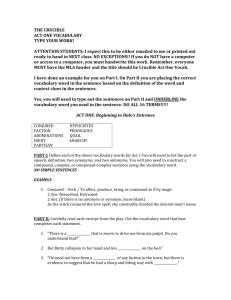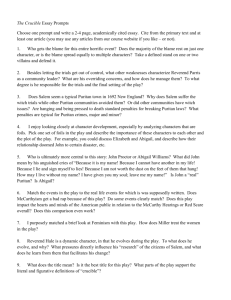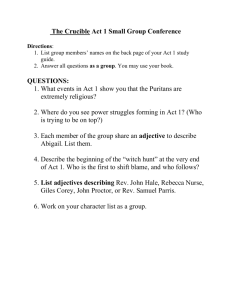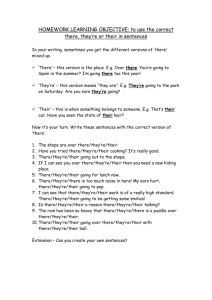Literary Analysis: Writing Effective Introductions
advertisement
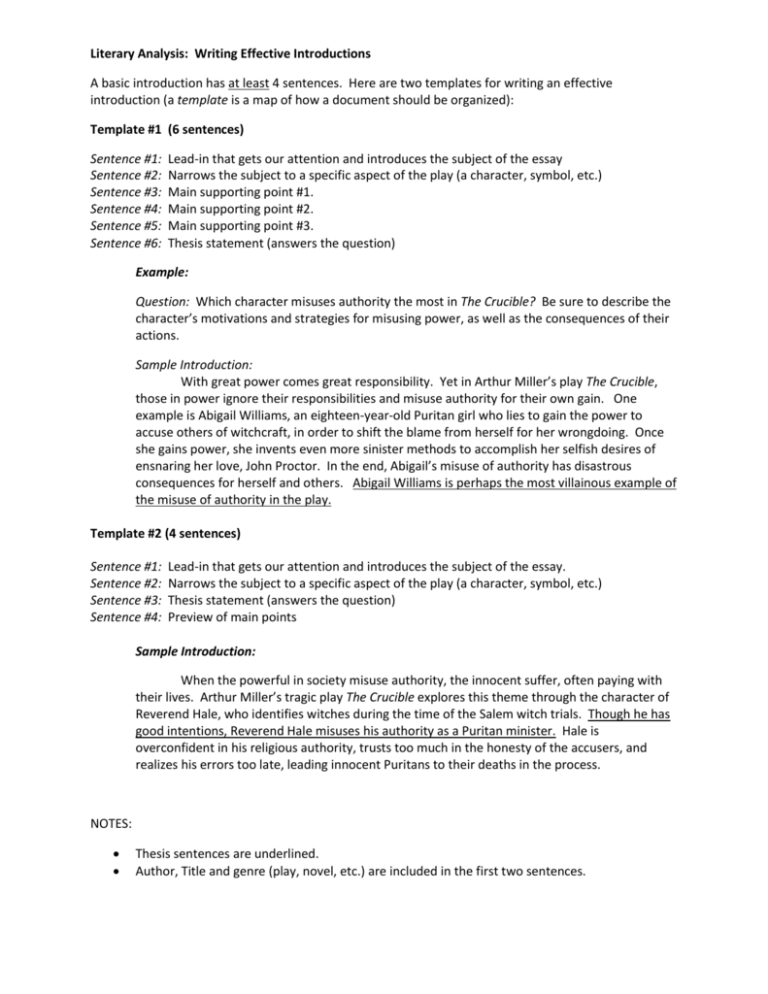
Literary Analysis: Writing Effective Introductions A basic introduction has at least 4 sentences. Here are two templates for writing an effective introduction (a template is a map of how a document should be organized): Template #1 (6 sentences) Sentence #1: Sentence #2: Sentence #3: Sentence #4: Sentence #5: Sentence #6: Lead-in that gets our attention and introduces the subject of the essay Narrows the subject to a specific aspect of the play (a character, symbol, etc.) Main supporting point #1. Main supporting point #2. Main supporting point #3. Thesis statement (answers the question) Example: Question: Which character misuses authority the most in The Crucible? Be sure to describe the character’s motivations and strategies for misusing power, as well as the consequences of their actions. Sample Introduction: With great power comes great responsibility. Yet in Arthur Miller’s play The Crucible, those in power ignore their responsibilities and misuse authority for their own gain. One example is Abigail Williams, an eighteen-year-old Puritan girl who lies to gain the power to accuse others of witchcraft, in order to shift the blame from herself for her wrongdoing. Once she gains power, she invents even more sinister methods to accomplish her selfish desires of ensnaring her love, John Proctor. In the end, Abigail’s misuse of authority has disastrous consequences for herself and others. Abigail Williams is perhaps the most villainous example of the misuse of authority in the play. Template #2 (4 sentences) Sentence #1: Sentence #2: Sentence #3: Sentence #4: Lead-in that gets our attention and introduces the subject of the essay. Narrows the subject to a specific aspect of the play (a character, symbol, etc.) Thesis statement (answers the question) Preview of main points Sample Introduction: When the powerful in society misuse authority, the innocent suffer, often paying with their lives. Arthur Miller’s tragic play The Crucible explores this theme through the character of Reverend Hale, who identifies witches during the time of the Salem witch trials. Though he has good intentions, Reverend Hale misuses his authority as a Puritan minister. Hale is overconfident in his religious authority, trusts too much in the honesty of the accusers, and realizes his errors too late, leading innocent Puritans to their deaths in the process. NOTES: Thesis sentences are underlined. Author, Title and genre (play, novel, etc.) are included in the first two sentences.

